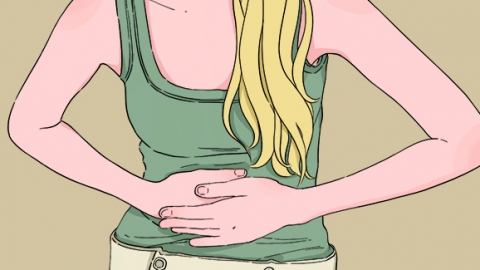What are the symptoms of excessive dampness in women?
Generally, main manifestations of excessive dampness in women include oily face with acne, oily hair with hair loss, menstrual irregularities, increased vaginal discharge, and limb edema. If discomfort symptoms occur, it is recommended to seek timely medical treatment at a formal hospital. Detailed analysis is as follows:
1. Oily Face with Acne
When women have excessive dampness, damp-heat tends to rise to the face, causing excessive sebum secretion, enlarged pores, and recurring red pimples or acne, especially noticeable on the forehead and chin. Acne may leave dark marks after healing.
2. Oily Hair and Hair Loss
Dampness affects sebum secretion on the scalp. Women may notice their hair quickly becoming oily, feeling sticky and uncomfortable shortly after washing. This may also be accompanied by increased hair loss, with more hair falling out during combing or washing.

3. Menstrual Irregularities
Excess dampness may obstruct the circulation of qi and blood, potentially causing menstrual cycle disorders, prolonged or shortened periods, excessive or reduced menstrual flow. Some women may also experience significant dysmenorrhea during menstruation, with dark-colored menstrual blood possibly containing blood clots.
4. Increased Vaginal Discharge
Damp pathogens invading the lower jiao (lower body) can increase vaginal discharge in women, making it thick and sticky in texture, with a white or light yellow color. Some individuals may also experience an unpleasant odor and occasional itching in the vulvar area, causing inconvenience in daily life.
5. Limb Edema
Women with excessive dampness may accumulate fluid in the limbs. After waking up in the morning, swelling might be noticed on the eyelids and ankles, with skin indentation remaining after pressing. By afternoon or evening, leg swelling may worsen, causing tightness and discomfort when wearing shoes.
In daily life, prolonged sitting or lying should be avoided. Appropriate exercises like brisk walking and rope jumping can help promote dampness elimination. Consumption of cold beverages, sweets, and fried foods should be reduced, while more adzuki bean and coix seed porridge or winter melon soup can be consumed. Maintain a regular sleep schedule, avoid staying up late, maintain personal hygiene, and change clothes frequently. If the above symptoms persist without improvement, timely medical consultation for adjustment is recommended.







